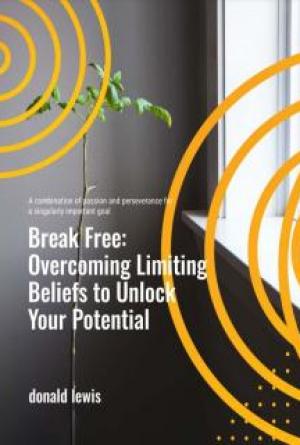Natural Weight Loss REVEALED
 Kathy Joyce
Kathy Joyce
Weightlossdietingtips.com
Legal Notice:
While all attempts have been made to verify information provided in this publication, neither the Author nor the Publisher assumes any responsibility for errors, omissions, or contrary interpretation of the subject matter herein.
This publication is not intended for use as a source of legal or accounting advice. The Publisher wants to stress that the information contained herein may be subject to varying state and/or local laws or regulations. All users are advised to retain competent counsel to determine what state and/or local laws or regulations may apply to the user's particular business.
The Purchaser or Reader of this publication assumes responsibility for the use of these materials and information. Adherence to all applicable laws and regulations, federal, state, and local, governing professional licensing, business practices, advertising, and all other aspects of doing business in the United States or any other jurisdiction is the sole responsibility of the Purchaser or Reader.
The Author and Publisher assume no responsibility or liability whatsoever on the behalf of any Purchaser or Reader of these materials.
Any perceived slights of specific people or organizations are unintentional.
Table Of Contents
Table Of Contents ...............................................................................3
Introduction .........................................................................................4
Why Lose Weight? ..............................................................................6
Physical appearance........................................................................................ 6
Health concerns ............................................................................................... 8
Overweight and obese ..................................................................................... 8
Why We Gain Weight ........................................................................10
Consumption of calories................................................................................. 10
Reasons for weight gain................................................................................. 11
Low Metabolism ...................................................................................................................11
How you eat .........................................................................................................................12
Your genetic makeup ...........................................................................................................12
Exercise ...............................................................................................................................13
Is society partly to blame?.............................................................................. 14
Good Nutrition ...................................................................................15
Your calorie intake ......................................................................................... 15
Tracking your calories .................................................................................... 16
The food we eat ............................................................................................. 17
High-fat foods.......................................................................................................................17
High-carb foods....................................................................................................................18
Where do we go from here?........................................................................... 21
Getting Active....................................................................................23
Exercise in your life ........................................................................................ 23
The case for exercise...........................................................................................................23
Exercise in your home .........................................................................................................24
Light exercise.......................................................................................................................26
Moderate exercise ...............................................................................................................27
Heavy exercise ....................................................................................................................28
Finding an exercise program that is right for you .................................................................29
What Diets Are Out There? ..............................................................31
The Plans....................................................................................................... 31
The Atkins Diet ....................................................................................................................31
Typical Low Carb Diet..........................................................................................................33
Low fat diet...........................................................................................................................35
Weight Watchers / Jenny Craig............................................................................................38
Diet Pills...............................................................................................................................38
Our Plan For Losing Weight ............................................................41
Exercise ......................................................................................................... 42
Nutrition ......................................................................................................... 43
Setting up a plan for you ................................................................................ 45
Conclusion.........................................................................................48
Useful Websites ................................................................................49
Introduction
Millions of people every year make a commitment to try and lose weight, yet may of those same people have a difficult time keeping that commitment and the weight stays on, and the hearts and bodies remain heavy.
There are diet plans, diet pills, crash diets, low-carb diets, highprotein diets – pretty much anything that you think of to lose that spare tire around your waist or the bulge in your buns. But, what works? Technically all of them will, but they might require making huge lifestyle changes in the process.
No matter what process you use to lose weight, it isnt going to be an easy run. The bottom line is curbing how much you eat, or changing the foods you eat and matching it with appropriate exercise to create a net calorie deficiency. Whats that, you ask? Well get into that more later.
In this book we have tried to put together as much knowledge as possible on weight loss, so you can make an educated decision on your own weight loss plan.
Heres what we have inside:

Why lose weight?

The physical reason for weight gain

Good nutrition

The importance of exercise

What plans are out there? Do they work?

Putting together a plan

The problems of the obese

A healthier lifestyle

And more!
Ive tried to include as much information as I can about weight loss, so you wont leave this book with too many more questions to ask.
So, lets get started. We can get on the road to better health and a better body by putting in a little bit of effort for a huge reward.
IMPORTANT: This book is intended to provide information and ideas pertaining to weight loss. It is NOT a substitute for professional advice from a dietician, nutritionist or your family practitioner. You should consult your physician before undertaking any sort of diet or extended physical exertion.
The publisher and author of this book will not be held responsible for any personal loss, health problem, or hardship that may come a result of reading this book.
We have made every effort to ensure the information in this book is accurate and up to date.

Why Lose Weight?
Do you look in the mirror and you just dont like what you see? An inflatable tube has taken up residence on your waist, and your butt seems to have dropped a couple of inches. You take a look at your face and you start to see the development of a little bit of waddle underneath the chin.
What do you do? Why is this happening? Better yet, what is happening to my body when I gain weight? These are all fantastic questions that are going to be answered this book on how to lose weight, and keep it off.
Many people ogle the beautiful bodies on the beach – men and women alike. Nice, tight round bottoms, flat stomachs and well toned bodies. Ill be honest, there are some who dont need to do a darn thing and they stay in relatively good shape, but for the vast majority of people need to take notice of what they eat, how much they eat, and how much daily exercise they are getting.
Why does our weight matter so much to us? Probably for two reason – physical appearance and health.
Physical appearance
No one really wants to be fat. Plain and simple. For many people physical appearance is linked directly to their self-esteem. If they believe their body is undesirable to others, they can become depressed, or stressed and it causes serious emotional problems. Worse yet, in some, it can trigger the impulse to eat even more, making the problem worse.
The emotional side of being obese is only just being charted in the medical world. It is already understood that a persons self worth and self-confidence can be shattered if they gain excess weight. But the emotional toll it can take over an extended period of time might be considerably more damaging.
Heres a quick test to see if you have experienced some sort of emotional response to weight gain:

Have you ever looked in the mirror and thought, “I am so ugly”?

Are you comfortable with the way you look when you look in the mirror?

Are you concerned with what your partner thinks of your body?

Are you conscious of other people looking at your when you go out, or are seen in public?
If you answered yes to any of those questions, it is obvious that your weight has some sort of emotional control over you. I dont think anyone wants his or her physical appearance to have that kind of control. So, as I see it, a person has two choices: Do something about it, or live with it– and the potential ongoing emotional turmoil.
I would strongly suggest doing something about it, and we are going to show you how throughout the rest of this book.
Health concerns
You have no doubt heard the numerous health-related problems that come from being overweight. Even being 20 lbs. overweight can start to cause hidden health problems.
Instead of that lower back pain being from yesterdays squash game, its because your body isnt used to carrying an extra 20 lbs. on the front end. Imagine right now if you were to strap a 20-pound weight to your belly and walk around with it all day long.
An extremely high weight can put considerable stress on your joints, especially if you arent set up (height) to handle that sort of weight.
Then we get to the biggies – heart disease, stroke and high blood pressure. Oh, and dont forget diabetes. These are pretty serious players in the health world. In fact, they are the largest killers of human beings, in the world.
Medical Fact: In a study of 5881 people over a 14-year period, doctors revealed that someone who is merely ‘overweight’ has a 34% greater chance of heart failure. A person who is considered obese has a 104% increase in risk of heart failure over someone who is in their target weight range.
Do we have your attention?
Overweight and obese
You might think, “what is the difference?” Medically speaking, there is a difference. Most doctors consider someone who is 20 to 30 per cent over their ideal body weight to be obese. You are considered overweight if you are over 25 on the body mass index. Thats anywhere from 5 to 15 per cent over your ideal body weight.
Rather than try to tell you what your ideal body weight is, here is a great website that will tell you what your best weight would be (it also includes a table on BMI (body mass index)).
http://www.halls.md/ideal-weight/body.htm
Either way, you are at a much greater risk of having one of the above diseases by being overweight. If that isnt a reason why you should start trying to lose weight, I dont know what is.
So, if youve found that you are overweight or obese by doing the above calculations, and you are serious about losing those unwanted pounds, then you have a decision to make.
Is it time to take action and make changes to your lifestyle that are going to make you healthier and happier?
We hope so! Why We Gain Weight
There are many reasons why a person gains weight. It can be as simple as overeating and not getting enough exercise to counteract the number of calories that are being consumed, to it being a gene that is passed down generation to generation.
To properly understand how a person is going to lose weight, you do have to understand why we gain it. In this section we are going to describe the different reasons why we gain weight.
Consumption of calories
This is when we just eat more calories than our bodies use each day. When we eat food our body converts the material into sugars. It is actually an evolutionary response our bodies have to store excess energy sources when food was scarce. When food wasnt readily available, humans were able to use their body fat as a means of sustaining their regular daily activities between other meals. It was easier for a person to get by when the food sources were low, if they had a little extra storage.
Even though our early ancestors began the storage of fat in their bodies, they had to work very hard to find or harvest food, so the excess fat was usually burned off. They didnt have the same problems with obesity that we do today.
Today, for the most part, food is readily available for each of us to consume. And, far too often we indulge ourselves in the edible luxuries that we have today.
So now today, we are forced to find alternative methods of trying to lose weight that has built up as storage for lasting between meals. Understanding how the body retains fat and how it is burned is our only weapon against gaining weight, as our bodies have not yet had the time to catch up to our rapid development in society, and our ability to produce food whenever we want it.
Reasons for weight gain
Low Metabolism Metabolism can be linked to genetics, but it has more to do with how active we are, and the amount of muscle tissue we have compared with fat.
Our muscles actively burn off the calories that we consume. They require more energy to work effectively. If we are living an inactive lifestyle, our muscles break down and they dont burn the calories like they should. Therefore, if our muscles are not breaking down the calories we consumed, it gets converted to fat cells.
When we are not active, our metabolism decreases, and as a result less calories are burned for energy and more are stored as fat.
A more active person slows the decline of their muscles mass and may even increase the overall muscle mass, depending on activity, and then the metabolism is higher. This makes it easier for a person to lose weight.
How do you increase your metabolism?

Exercise that helps build muscle, metabolism. Any exercise will help.

Eat smaller meals more frequently. also helps increase
If you have a small, healthy snack in between meals you can actually jumpstart your metabolism. There are certain foods that speed
metabolism.

Dont starve yourself when trying to lose weight. If your body has nothing to metabolize, it will slow down completely. Then when you go to eat, your body will have a very difficult time breaking down food without it turning straight into fat.

One of the best low-impact exercises to do is walking. Try walking for 30 minutes three times a week. It will increase your metabolism considerably.

Make sure you e at breakfast. If you dont start your day getting your metabolism going, you could have a hard time doing it when you eat a big lunch or big dinner.
How you eat– Your eating habits can play a huge role in determining your weight. Do you eat smaller, lean servings instead of gorging yourself on your mothers world-famous spaghetti and meatballs? What about how fast you eat? All of these things have an effect on your ability to gain and lose weight.
Here are a few tips on your eating habits that can have a profound effect on your battle to lose weight.

High-fat, high calorie foods are tough on the body, and it takes a long time to break them down. You are at greater risk if you are eating foods like this. Pastas with cheeses and or cream sauces are an example of high fat and highcalorie.

Take your time when you eat – for a number of reasons. First, your stomach takes time to tell your brain you are full. You risk overeating when you eat too fast. Second, if you chew your food completely, the enzymes in your saliva aid in the breaking down of complex compounds in your foods, making it easier for your body to keep up. Its also worth mentioning that the faster you eat, the greater chance you have of building up gas.

Eat smaller portions more often. We discussed this earlier, and you can boost your metabolism by making it work in smaller session more often. Also it helps when you eat smaller portions, because you dont risk overeating and forcing your body to keep up with your eating.
Your genetic makeup – Your metabolism may already be determined for you by the genes your parents passed down. But, this is NOT an excuse for not doing what you can to raise your metabolism if you have been passed down a slower one by nature. Just as people with higher metabolism can lower it by reducing activity and having poor eating habits.
Many people who are overweight or obese will say, “its hereditary.” This can be the case, but your genes are just a small part of the overall picture. They only determine whether or not there is a likelihood of a person having a predisposition for obesity.
Exercise – Everyone needs to get exercise. There is no replacement for getting the heart pumping and building up those muscles when it comes to losing weight. But, not enough of us make the time to get it. Exercise doesnt have to be pumping iron at the gym or even taking a 10-mile bike ride. Take your dog for a 30-minute walk around the park. He will love it, and you will feel better, too.
Youve all heard the benefits of exercise before, but they are worth mentioning again:

You will feel better. Isnt that a good start? Exercise rejuvenates the mind, body and spirit.

Exercise rebuilds muscles and therefore increases your metabolism. Remember muscles are burners of energy and the more muscles the more calories are burned. Find out
how you can burn abdominal fat very effectively.

Exercise lowers stress. Studies have shown that even 20 minutes of exercise, three times a week can have a dramatic effect on your stress level.

Exercise burns calories. When we get further into the book, and learn the process for losing weight over the long haul, you will understand why burning calories is so important. If you burn more calories than you eat, then your body starts burning the fat.
If you dont exercise on a regular basis, you will gain weight. That is almost as sure as death and taxes. Especially if you continue eating at a rate where you would be packing on the pounds if you did do some exercise.
Always remember that exercise can be any physical activity– walking, cycling, swimming, sex– anything where you are raising your heart rate for an extended period of time. For some people, that could even be working in the garden.
Is society partly to blame?
You could say that the advent of „super -sized fast-food meals, and even fast food in general could be a problem for many people. Our lifestyles dont permit the time it takes to put together a good solid meal for ourselves, or to even get enough exercise.
But, is society really to blame? I dont think so. Everyone has the choice to lead a healthy lifestyle. And when asked, probably every person would say they would prefer to life a healthy lifestyle and live longer, rather than continue on the trend they are on now.
As humans, we have been given the opportunity to make choices. Those choices come in many different shapes and sizes. The choice to lead a healthy lifestyle is one of those many forks in the road.
Good Nutrition
Good nutrition coupled with exercise is the key to being able to lose weight. Good nutrition is the key ingredient to improving your chances for weight loss. But were not talking crash diets here, or plain old starving yourself.
We are talking about eating healthy and making sure your portions match the number of calories you need on a daily basis. It is believed that if you can create a 500-calorie deficiency every day between exercise and nutrition, you can lose up to a pound a week.
Your calorie intake
Those calories should not be subtracted off of your recommended daily amount. It should be taken from the amount of calories you eat on a daily basis right now. For example: If you were an adult male eating 3,500 calories per day you can drop 250 calories from your diet and increase your energy consumption from exercise by 250 calories. If you can do this everyday, you will create a 3,500-calorie deficiency over the entire week – and that is the equivalent of one fat pound.
In order to lose weight you need to find a 500-calorie deficiency everyday. Do it through exercise and reducing what you eat. Minimum Calorie Intakes
Women should not consume less than 1,200 calories per day, or 1,000 less than your maintenance value (how many calories you need to keep your weight steady). The Harris-Benedict formula is one of the leading ways to calculate your maintenance value.
Men should not consume less than 1,800 calories per day, or 1,000 less than your maintenance value.
If you try a crash diet, where you are only consuming 1,000 calories per day and working out, or getting exercise, sure, you will lose weight. But, it isnt going to stay off. When you dont give your body enough fuel, it starts to consume the muscles in your body. As we learned earlier, the muscles are an important part of being able to metabolize your foods.
 Eating too little is not the way to have sustained weight loss.
Eating too little is not the way to have sustained weight loss.

You risk burning muscle of you crash diet by not eating anything. Your body will consume your muscle tissue, actually making it more difficult to keep the weight off down the road.






 Why lose weight?
Why lose weight? Putting together a plan
Putting together a plan
 Have you ever looked in the mirror and thought, “I am so ugly”?
Have you ever looked in the mirror and thought, “I am so ugly”?
 You will feel better. Isnt that a good start? Exercise rejuvenates the mind, body and spirit.
You will feel better. Isnt that a good start? Exercise rejuvenates the mind, body and spirit.


